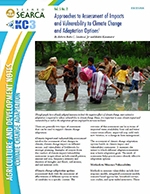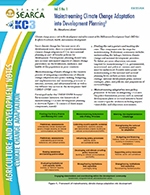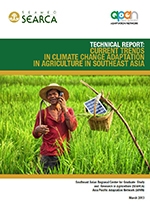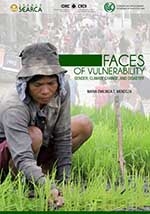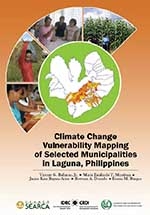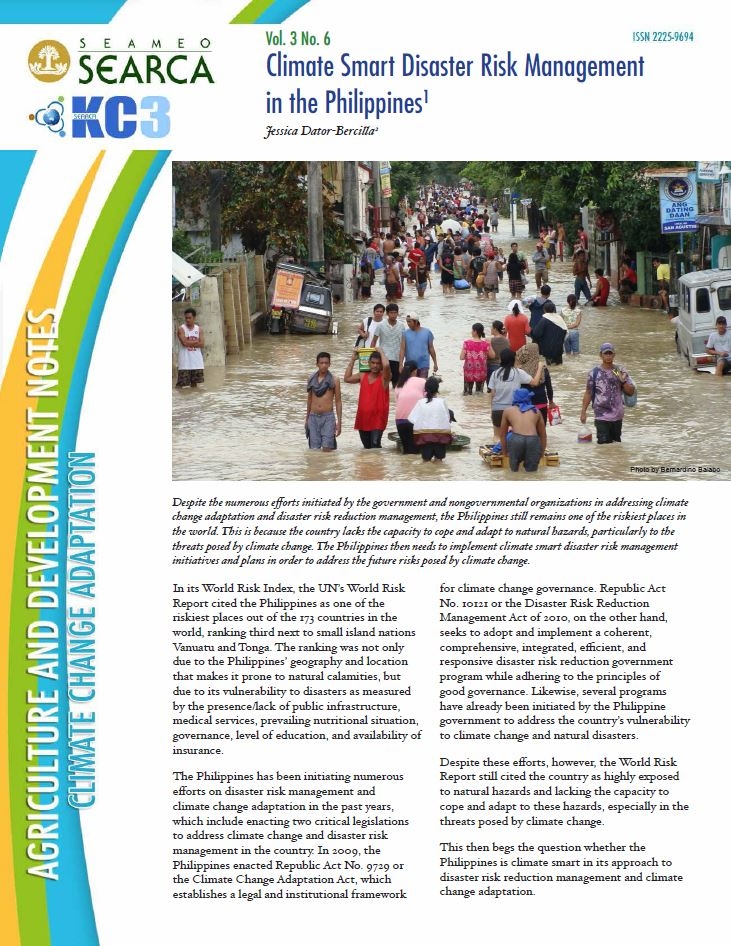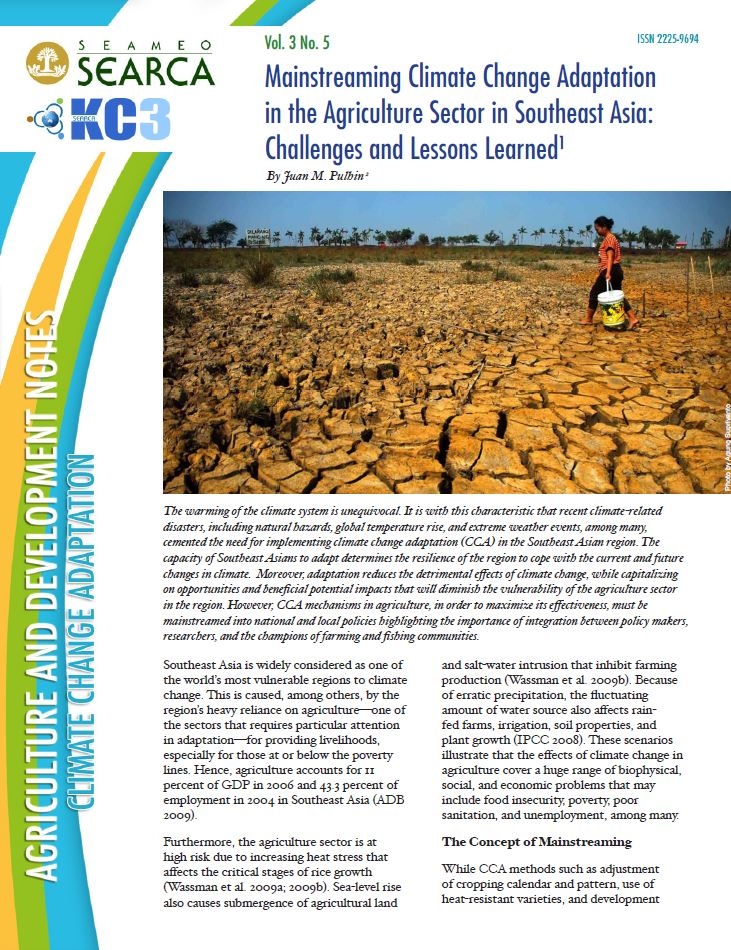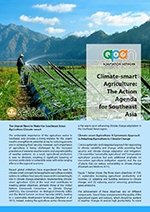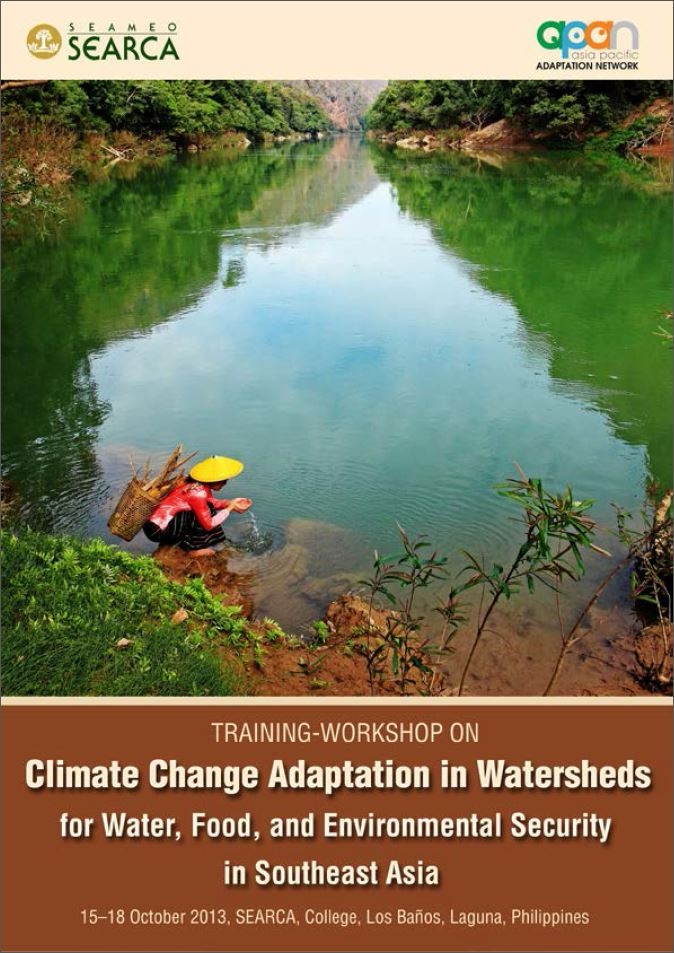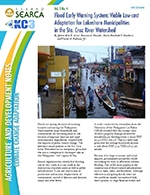SEARCA Publications
Though people have already adopted measures to limit the negative effects of climate change, more extensive adaptation is required to reduce vulnerability to climate change. Hence, it is important to assess climate impact and vulnerability as well as the adaptation options employed to increase resilience.
Climate change poses a risk to the development and achievement of the Millennium Development Goals (MDGs). It affects livelihoods, health, and economic development. Since climate change has become more of a development issue, there is a need to mainstream climate change adaptation (CCA) into national planning as part of broader policies for development. Development planning should take into account anticipated impacts of climate change particularly on the livelihoods, resilience, and health of the population in poor countries. Mainstreaming climate change…
Agriculture remains a major engine of growth in Southeast Asia, where it has the potential to reduce poverty and foster food security. To sustain and fully maximize the socioeconomic importance of agriculture in the region, the agenda of making it cliamte-smart is much warranted as environmental and climatic conditions have direct consequences on agricultural production. Better management of agricultural systems is urgently needed to mitigate the onset of rising frequency and intesity of weather extremes, which has led to various…
The understanding of vulnerability both at the household and individual level, as well as the sectoral and community level, was enriched by the research on social vulnerability and gender under the project entitled “Building Capacity to Adapt to Climate Change in Southeast Asia.” The study was conducted in the province of Laguna in the Philippines with the aim of identifying who are vulnerable, and analyzing why they are vulnerable, and how they adapt to the risks of climate change and…
Climate change is the most recent crisis of global impact and can be most detrimental to developing countries. Southeast Asia, in particular, has been noted as one of the regions most vulnerable to climate change. The objectives of the study were to measure the vulnerability of communities to climate change and to produce maps of each community’s relative vulnerability with respect to the commune and the agricultural sector. Three vulnerability determinants—exposure, sensitivity, and adaptive capacity—and their respective indicators were determined. Exposure…
Despite the numerous efforts initiated by the government and nongovernmental organizations in addressing climate change adaptation and disaster risk reduction management, the Philippines still remains one of the riskiest places in the world. This is because the country lacks the capacity to cope and adapt to natural hazards, particularly to the threats posed by climate change. The Philippines then needs to implement climate-smart disaster risk management plans and initiatives in order to address the future risks posed by climate change.
The warming of the climate system is unequivocal. It is with this characteristic that recent climate-related disasters, including natural hazards, global temperature rise, and extreme weather events, among many, cemented the need for implementing climate change adaptation (CCA) in the Southeast Asian region. The capacity of Southeast Asians to adapt determines the resilience of the region to cope with the current and future changes in climate. Moreover, adaptation reduces the detrimental effects of climate change, while capitalizing on opportunities and…
The undeniable importance of the agriculture sector in Southeast Asia provides a strong impetus for the urgent need to strengthen its potential as key for reducing poverty and in achieving food security. However, such importance of agriculture is being challenged by the increased prevalence of extreme weather events and unpredictability of weather patterns. As a result, agricultural production is seen to diminish resulting to significant lowering of incomes, particularly in vulnerable areas, with wide-ranging effects to the regional economy.
Organized by the Southeast Asian Regional Center for Graduate Study and Research in Agriculture (SEARCA) and the Asia Pacific Network (APAN), the training-workshop on Climate Change Adaptation in Watersheds for Water, Food, and Environmental Security in Southeast Asia held on 15–18 October 2013 at SEARCA, College, Los Baños, Laguna, Philippines called on twenty-three researchers, technical officers/ experts, and academics from five Southeast Asian countries to understand the intricate interrelationships among climate change and various extractive practices and measures affecting watersheds in order…
Floods are among the most devastating hazards confronting the Philippines. Unfortunately, many households and communities are becoming more at risk because of improper land use and rapid environmental degradation, coupled with the impacts of global climate change. The lakeshore municipalities in the Sta. Cruz River Watershed are no exception, given that the area is contiguous to the largest lake in the Philippines—the Laguna de Bay. Recent experience has shown that flooding can be very costly as it can result in…

